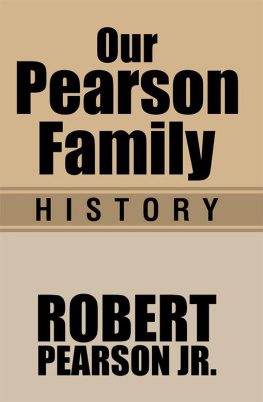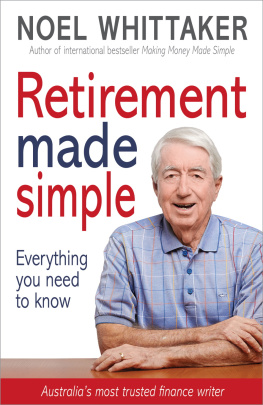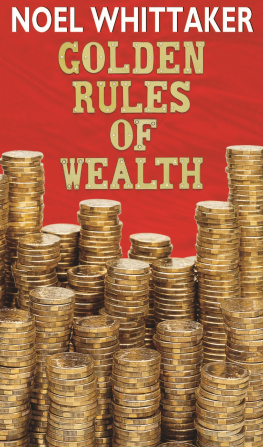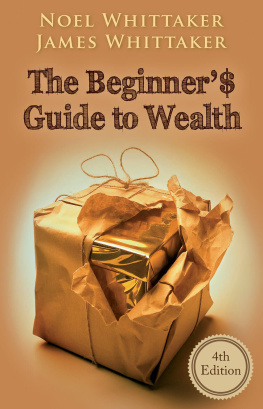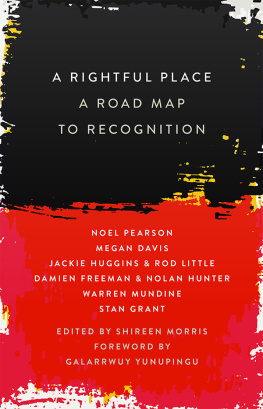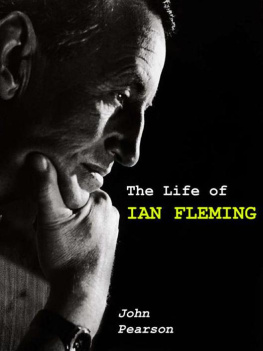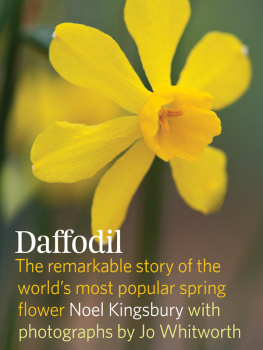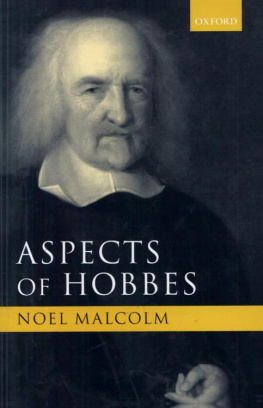Noel Pearson - Short Black 3 the War of the Worlds
Here you can read online Noel Pearson - Short Black 3 the War of the Worlds full text of the book (entire story) in english for free. Download pdf and epub, get meaning, cover and reviews about this ebook. year: 2015, publisher: Schwartz Books Pty. Ltd., genre: Politics. Description of the work, (preface) as well as reviews are available. Best literature library LitArk.com created for fans of good reading and offers a wide selection of genres:
Romance novel
Science fiction
Adventure
Detective
Science
History
Home and family
Prose
Art
Politics
Computer
Non-fiction
Religion
Business
Children
Humor
Choose a favorite category and find really read worthwhile books. Enjoy immersion in the world of imagination, feel the emotions of the characters or learn something new for yourself, make an fascinating discovery.
- Book:Short Black 3 the War of the Worlds
- Author:
- Publisher:Schwartz Books Pty. Ltd.
- Genre:
- Year:2015
- Rating:3 / 5
- Favourites:Add to favourites
- Your mark:
- 60
- 1
- 2
- 3
- 4
- 5
Short Black 3 the War of the Worlds: summary, description and annotation
We offer to read an annotation, description, summary or preface (depends on what the author of the book "Short Black 3 the War of the Worlds" wrote himself). If you haven't found the necessary information about the book — write in the comments, we will try to find it.
Short Black 3 the War of the Worlds — read online for free the complete book (whole text) full work
Below is the text of the book, divided by pages. System saving the place of the last page read, allows you to conveniently read the book "Short Black 3 the War of the Worlds" online for free, without having to search again every time where you left off. Put a bookmark, and you can go to the page where you finished reading at any time.
Font size:
Interval:
Bookmark:
SHORT BLACKS are gems of recent Australian writing brisk reads that quicken the pulse and stimulate the mind.
SHORT BLACKS
1 Richard Flanagan The Australian Disease: On the decline of love and the rise of non-freedom
2 Karen Hitchcock Fat City
3 Noel Pearson The War of the Worlds
4 Helen Garner Regions of Thick-Ribbed Ice
5 John Birmingham The Brave Ones: East Timor, 1999
6 Anna Krien Booze Territory
7 David Malouf The One Day
8 Simon Leys Prosper: A voyage at sea
9 Robert Manne Cypherpunk Revolutionary: On Julian Assange
10 Les Murray Killing the Black Dog
11 Robyn Davidson No Fixed Address
12 Galarrwuy Yunupingu Tradition, Truth and Tomorrow

Published by Black Inc.,
an imprint of Schwartz Publishing Pty Ltd
3739 Langridge Street
Collingwood VIC 3066 Australia
www.blackincbooks.com
Copyright Noel Pearson 2014
Noel Pearson asserts his right to be known as the author of this work.
First published in Quarterly Essay 55, A Rightful Place: Race, recognition and a more complete commonwealth, Black Inc., 2014.
This edition published 2015.
ALL RIGHTS RESERVED.
No part of this publication may be reproduced, stored in a retrieval system, or transmitted in any form by any means electronic, mechanical, photocopying, recording or otherwise without the prior consent of the publishers.
National Library of Australia Cataloguing-in-Publication entry :
Pearson, Noel, 1965, author. The war of the worlds / Noel Pearson.
9781863957656 (paperback) 9781925203493 (ebook)
Short blacks ; no.3. AustraliaColonial influence. Australia
ColonisationHistory. AustraliaHistory.
Cover and text design by Peter Long.
NOEL PEARSON is a lawyer and activist, and the founder of the Cape York Institute for Policy and Leadership. He is the author of Up from the Mission and two acclaimed Quarterly Essays, Radical Hope and A Rightful Place.
The inspiration for The War of the Worlds came one day when Wells and his brother Frank were strolling through the peaceful countryside in Surrey, south of London. They were discussing the invasion of the Australian island of Tasmania in the early 1800s by European settlers, who hunted down and killed most of the primitive people who lived there. To emphasise the reaction of these people, Frank said, Suppose some beings from another planet were to drop out of the sky suddenly and begin taking over Surrey and then all of England!
MALVINA G. VOGEL, FOREWORD (2005) TO H.G. WELLS, The War of the Worlds
A PERSONAL QUADRANT OF THE AUSTRALIAN LANDSCAPE
I came upon this foreword some years ago when sharing an enthusiasm of my youth for H.G. Wells The War of the Worlds with my young son. Even as he makes his way through his own all-consuming passions of boyhood Thomas, the Crocodile Hunter, Pirates of the Caribbean, Lord of the Rings, Minecraft and now Harry Potter I indulge my own nostalgia by sharing those things that possessed me when I was a boy. Weve done Richard III, to which we will doubtless return. Weve read Charles Portiss masterpiece True Grit, and watched the original John Wayne film and the Coen brothers remake a hundred times. Weve acted out the shoot-out scenes; hes always Rooster. We are yet to get to Sir Arthur Conan Doyle and The Hound of the Baskervilles. His younger sister and I have started Great Expectations.
First turned on by Jeff Waynes musical version of The War of the Worlds in early high school, aware of Orson Welles radio hoax and having read the Wells book, I was stunned to have been unaware of the inspiration for the idea of a Martian invasion of England its origin in what was called the extirpation of the original Tasmanians. I was disquieted that the source of this extraordinary production in world culture was unknown to me. I knew it was likely unknown to everyone around me, and to almost all of my fellow Australians. How come?
H.G. Wells knew of the original Tasmanians, but that did not mean he felt empathy for the fate of this inferior race at the hands of the British. Instead he subscribed to the scientific racism of his era, believing them Palaeolithic, and writing, The Tasmanians, in spite of their human likeness, were entirely swept out of existence in a war of extermination waged by European immigrants.
In The Last Man: A British Genocide in Tasmania (2014), the English historian Tom Lawson shows how the destruction of the Tasmanians played out in British culture. We will return to Lawsons contribution to the debate on genocide in Tasmania soon, after we lift the scales from our eyes concerning some of the most revered figures of that culture in the nineteenth century.
The novelist Anthony Trollope, in his emigration guide Australia and New Zealand, demanded his British readers squarely face the fact that colonisation involved the theft of land and the destruction of its original owners which fact was not morally wrong but an advancement of civilisation. Lawson writes that Trollope cannot be taken as other than calling for genocide when he wrote: of the Australian black man we may say certainly that he has to go. That he should perish without unnecessary suffering should be the aim of all who are concerned in this matter.
Charles Darwin, the centurys greatest scientist (whom Lawson calls a self-conscious liberal humanitarian), while opposing polygenist theories that various races were distinct species, nevertheless proposed culture as the basis of inferiority and superiority (Lawson: indigenous Tasmanians in Darwins formulation had been swept aside by a more culturally developed, more civilised people). Lawson writes: The Descent of Man was Darwins answer to that new political context, in which he asserted that while biologically the human race was singular there were in effect cultural differences that allowed for some form of racial hierarchy. The Tasmanians appeared at the bottom of this hierarchy.
Darwin wrote:
when civilised nations come into contact with barbarians the struggle is short Of the causes which lead to the victory of civilised nations, some are plain and simple, others complex and obscure. We can see that the cultivation of the land be fatal in many ways to savages, for they cannot, or will not, change their habits.
Of course, the deformation of Darwins theory of natural selection into social Darwinism and the scientific racism of the latter half of the nineteenth century and the first half of the twentieth was the source of much misery for indigenes throughout the colonial world. Darwin was not entirely innocent of this conflation of biology and culture, which gave scientific authority to an ideology of inevitability about the demise of the Tasmanians and others of their ilk in the face of European superiority.
I expected Charles Darwin. But I didnt expect Charles Dickens.
Of the centurys greatest English novelist, the author of Great Expectations and an immortal canon, Lawson writes, Dickens famously attacked the humanitarian idealisation of the noble savage in June 1853, in a furious denunciation that amounts, to use modern-day language, to a call for genocide.
Dickens wrote:
I call him a savage, and I call a savage something highly desirable to be civilised off the face of the earth my position is that if we have anything to learn from the Noble Savage, it is what to avoid. His virtues are a fable; his happiness is a delusion; his nobility nonsense. We have no greater justification for being cruel to the miserable object, than for being cruel to a William Shakespeare or an Isaac Newton; but he passes away before an immeasurably better and higher power than ever ran wild in any earthly woods, and the world will be all the better when his place knows him no more.
Next pageFont size:
Interval:
Bookmark:
Similar books «Short Black 3 the War of the Worlds»
Look at similar books to Short Black 3 the War of the Worlds. We have selected literature similar in name and meaning in the hope of providing readers with more options to find new, interesting, not yet read works.
Discussion, reviews of the book Short Black 3 the War of the Worlds and just readers' own opinions. Leave your comments, write what you think about the work, its meaning or the main characters. Specify what exactly you liked and what you didn't like, and why you think so.

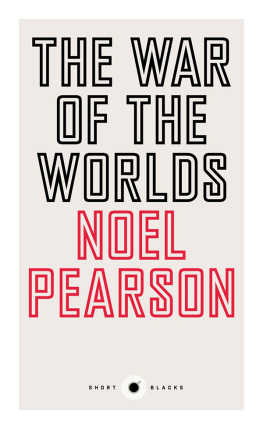
![Mendi Kuk - A Very Austen Noel [Anthology]](/uploads/posts/book/931765/thumbs/mendi-kuk-a-very-austen-noel-anthology.jpg)
